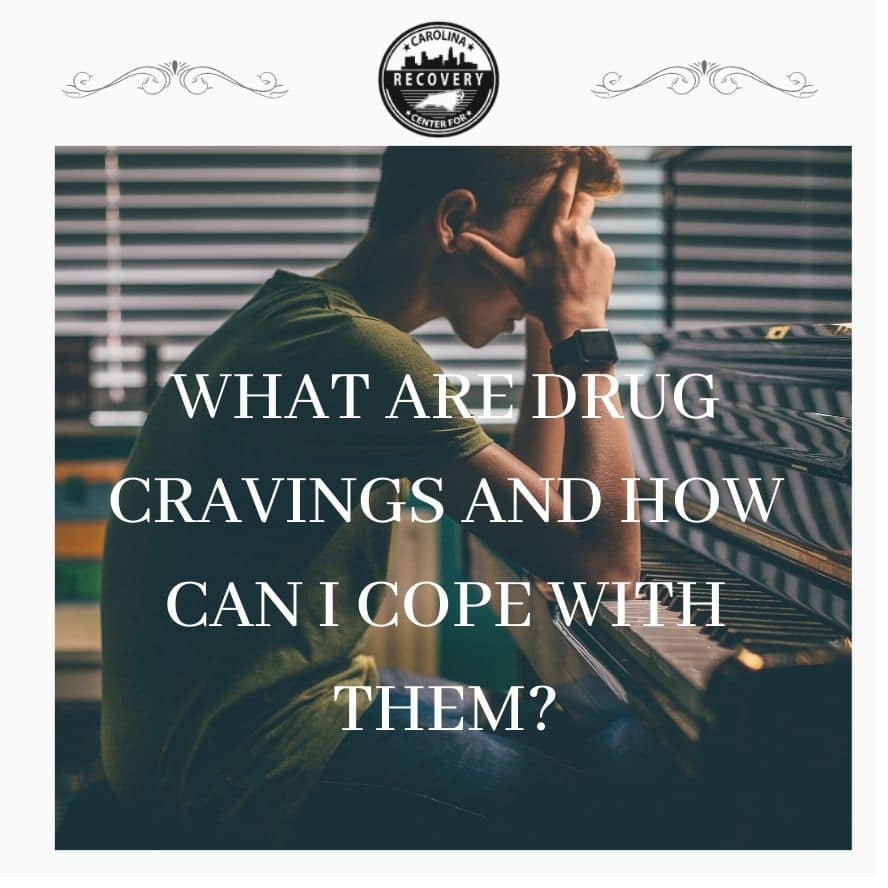What Are Drug Cravings and How Can I Cope With Them?

Medically Verified: 2/1/24
Medical Reviewer
Chief Editor

All of the information on this page has been reviewed and verified by a certified addiction professional.
When an average person refers to a “craving,” they are usually talking about a sweet dessert treat or savory meal that they haven’t enjoyed in a while. These cravings are normal, and not particularly dangerous. Drug cravings, however, are an entirely different ball game. These cravings affect people who are currently suffering from or have already overcome an addiction to drugs and alcohol. These cravings, or uncontrollable urges to use drugs, can come with little warning and feel very powerful.
If you are in recovery, it’s vital to learn what drug cravings are and how you can cope with them so you can stay sober.
What Are Drug Cravings?
Drug cravings are best described as an intense desire to use substances that you were previously addicted to. Cravings typically occur after exposure to a person, place, or thing that either reminds you of your addiction or causes unwelcome emotions that make you want to use drugs and/or alcohol. You may experience cravings when the last dose of your drug of choice wears off, during the acute stages of drug and alcohol withdrawal, and in the early months of your sobriety.
Drug cravings can be very strong and intimidating. They can make you feel as though you won’t feel better until you consume a substance. If you don’t know how to cope with cravings appropriately, these desires can hold you back from attaining long-term sobriety.
What Causes Drug Cravings?
Cravings are the direct result of the changes that have occurred in your brain and body from your addiction. Repeated substance abuse, whether it be drugs or alcohol, changes the brain over time. The brain begins associating feelings of pleasure with using a certain substance, and it causes the body to get sick when deprived of that substance. Then, when you try to stop taking the substance you are addicted to, your brain goes into overdrive as it attempts to reach normal functioning without the drug it has become dependent on. The symptoms you experience when you stop taking a substance are called withdrawals–and one symptom of withdrawal that tends to last longer than others is drug cravings.
Cravings, or urges to use substances, are extremely common among people in recovery. They can vary in strength, frequency, and duration. However, it’s safe to say the longer you’ve been addicted, the worse your cravings may become. After all, the more severe your addiction, the greater the changes in your brain are going to affect your mood, emotions, thoughts, and decision-making.[1]
How Long Do Cravings Last After Getting Sober?
How long drug cravings last varies from one person to the next. The more severe and long-lasting your addiction was, the longer you can expect to battle urges to use substances.
Your cravings may be most severe in the first 1-3 weeks after quitting drugs and alcohol. After the first three weeks, your cravings may become less intense. They may also come and go depending on the time of day, external triggers, and your mood. You may even go several days without having cravings before the next ones begin. One common feature between all cravings, however, is that they are fleeting and temporary.
Overall, sporadic drug cravings can last for about 6-24 months after you complete detox.
Even though drug and alcohol cravings can last for several months and even years, studies show that 78% of people who seek treatment demonstrate a reduced level of craving by the time they are discharged from rehab.[2]
How Can I Cope With Drug Cravings?
An addict’s natural instinct, when faced with desires or urges to use drugs, is simply to use drugs and get high. However, these cravings contributed to your addiction in the first place, so giving into them isn’t going to help you get sober. When you attend an addiction treatment program in North Carolina, you’ll learn various coping skills that can help you overcome drug cravings while maintaining your sobriety.
A few ways you can cope with cravings or urges to use substances include:
- Learn to identify your triggers and remove yourself from unsafe situations or environments
- Practice deep-breathing and mindfulness meditation techniques
- Speak with a member of your sober support network about the way you are feeling
- Distract yourself by engaging in a healthy activity like working out, painting a picture, or listening to music
- Attend a local 12-Step recovery meeting
It’s important to remember that cravings do not last forever. They always pass, so long as you don’t give in. Lastly, if you become seriously overwhelmed with the desire to get high, reflect on why you ended up in rehab in the first place. Try to think of all the things you’ve gained in life after getting sober. Simply reflecting on the consequences of your addiction compared to the benefits of sobriety may be able to help you overcome your urges.
Find Help for Drug and Alcohol Abuse Today
Here at Carolina Center for Recovery, our goal is to help you find lifelong sobriety. That means you need to learn the appropriate coping skills to maintain a sober lifestyle and cope with cravings. Our behavioral therapy sessions, mindfulness-based relapse prevention techniques, and 12-Step facilitation can help you overcome urges and feel confident in your sobriety.
If you or a loved one are looking for addiction help, give us a call today. Our dedicated admissions counselors are standing by to assist you.
References:

